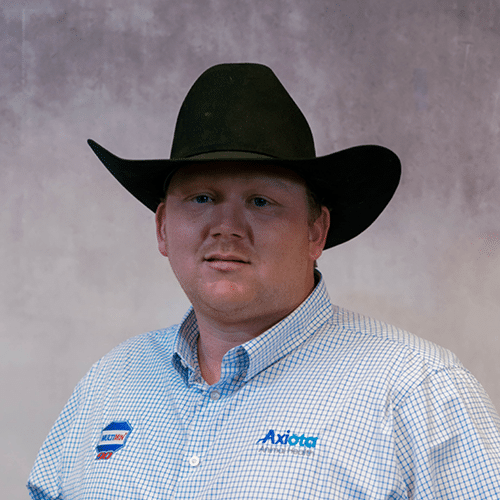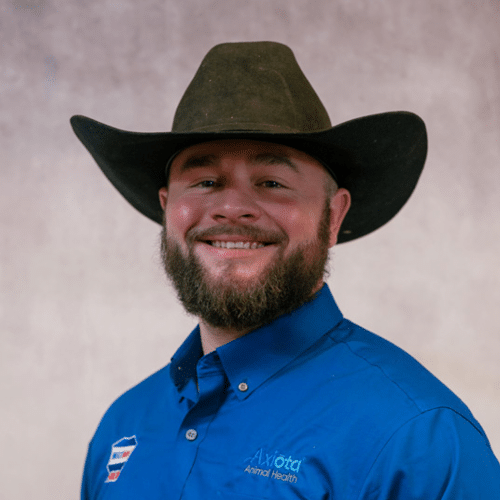
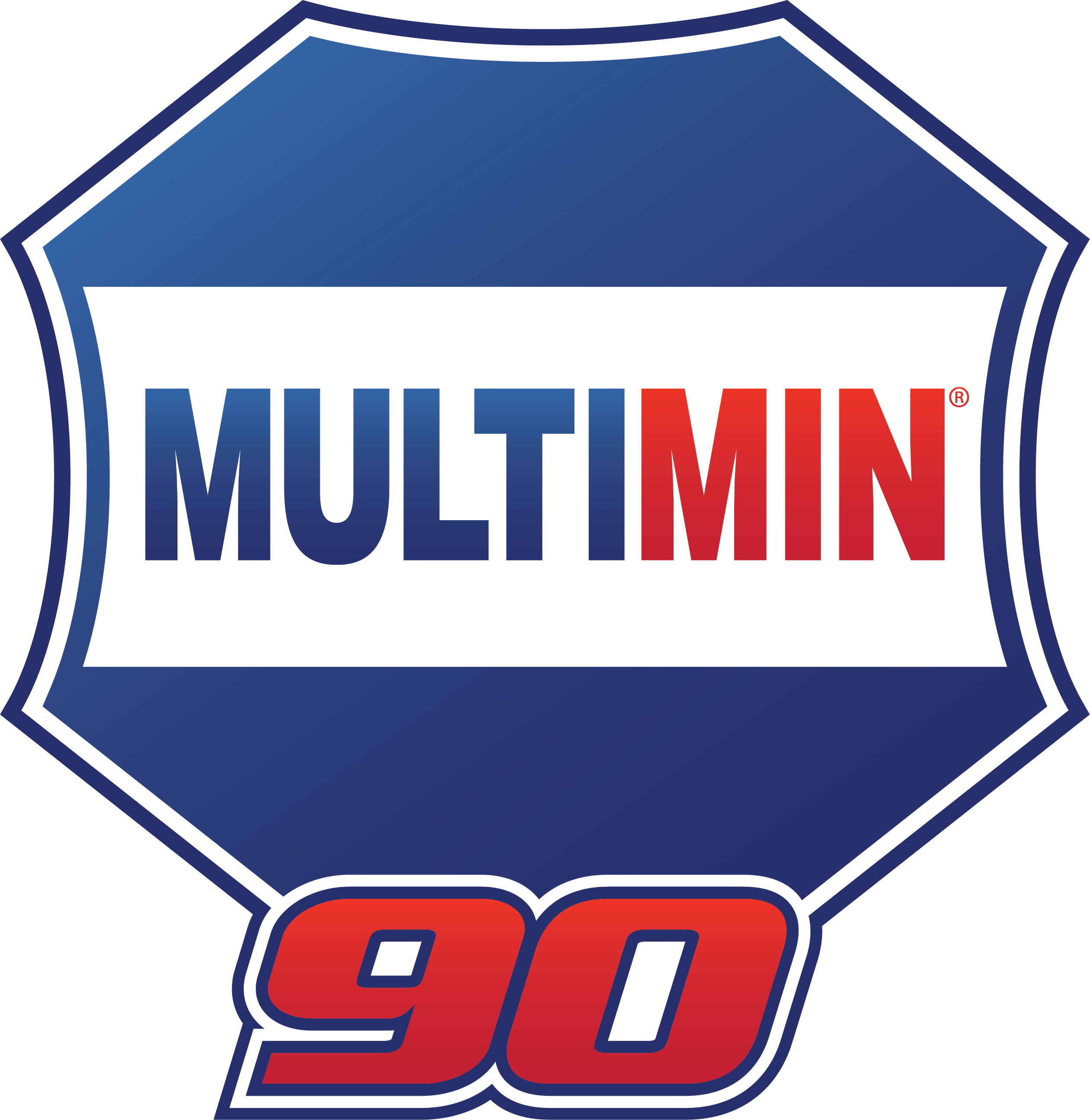
Your Best Shot at Strategic Trace Mineral Supplementation
Supports healthy calving
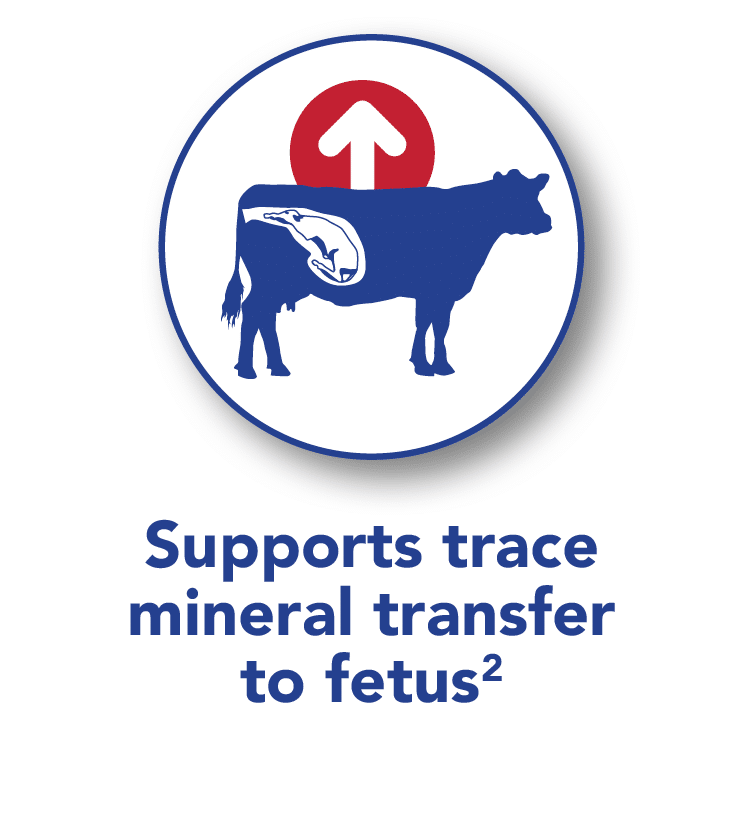
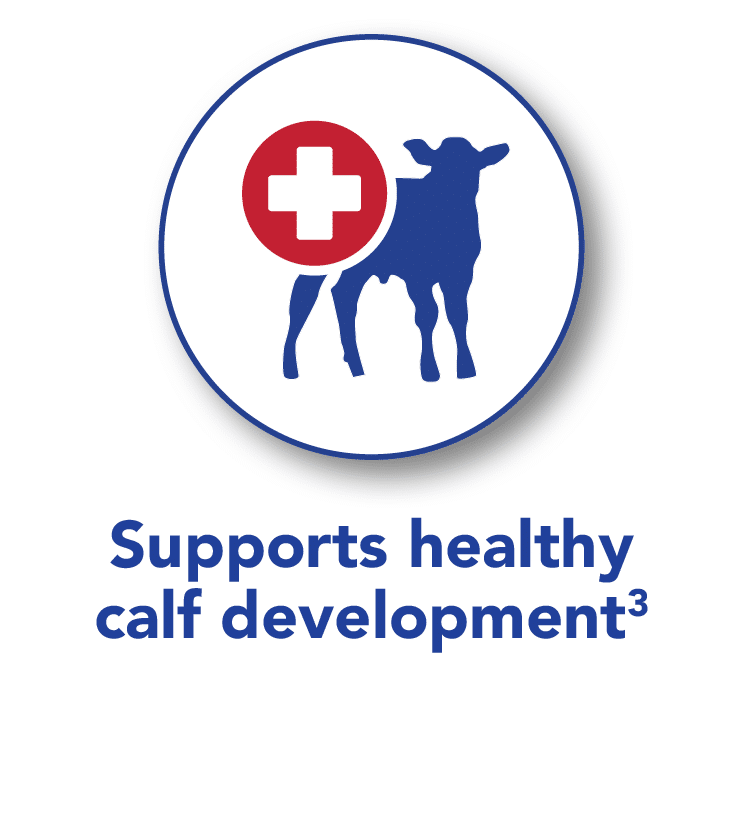
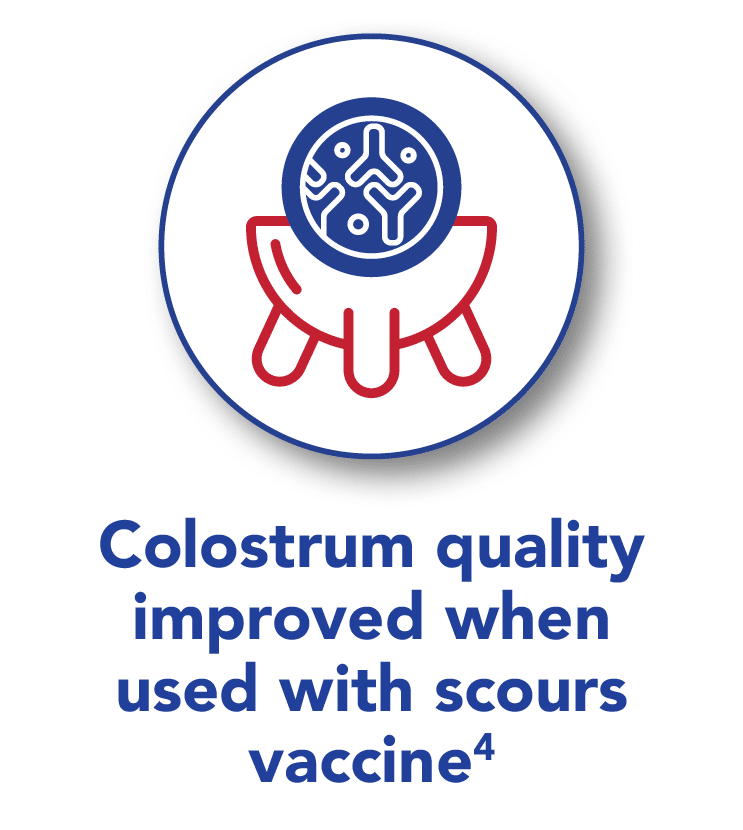
Supports trace mineral transfer to fetus
Limited trace minerals are provided through the cow’s milk, so it’s imperative that the calf receive adequate trace minerals in utero.5 Trace minerals transferred from cow to fetus in the third trimester have a major impact on calf health and trace mineral status in the first 100–150 days. Multimin 90 supports both cow and calf by providing zinc, copper, manganese and selenium to the cow in preparation for birth.
During the last trimester of pregnancy, the cow mobilizes trace minerals from her liver into the bloodstream for placental transfer to the fetus’ liver. When the calf is born, it will have 3–4 times the liver trace mineral level of the cow — so ensuring the cow is well supplemented in the third trimester to provide for cow-to-calf transfer is critical. Proper trace mineral status at birth positively impacts the calf’s6,7:
- Bone and cartilage development
- Appetite
- Health
- Innate immunity
Supplementing trace minerals with Multimin 90 rapidly increases mineral status and positions the cow to support mineral transfer to the fetus and maintain mineral status in the cow during the third trimester. Studies demonstrate6 low trace mineral levels post-partum can result in:
- Retained placenta
- Uterine infection
- Mastitis
Supports healthy calf development
The trace mineral status of a pregnant cow or heifer helps support pregnancy in utero. Poor trace mineral status of the cow/heifer may result in:
- Increased risk of disease in cow and/or calf
- Weak calves
- Abortion
After birth, a calf will deplete 70% of its copper and zinc status within the first 56 days.8 Selenium and manganese will also gradually deplete over time due to rapid growth and limited availability of trace minerals in the milk. Trace minerals are vital to health, appetite, and proper development. Strategic trace mineral supplementation with Multimin 90 helps support continued calf growth and improved immune function by supplying the cow with four key trace minerals to pass on to the calf. Calves6,7 born to cows with adequate trace mineral status are better able to:
- Thermoregulate
- Support innate immunity
Colostrum quality improved when used with scours vaccine
Neonatal Calf Diarrhea (scours) is responsible for 80% of sickness and 57% of deaths in unweaned calves in the United States.9,10 This problem has a significant impact on calves’ health and is a major driver in profitability, so prevention is key.
A University of Georgia study4 indicated that treating pregnant heifers and cows with Multimin 90 and a scours prevention vaccine, before calving, improved colostrum quality. Calves that received better quality colostrum from cows who received Multimin 90 and scours vaccination pre-calving, tended to have more specific antibodies for better scours protection.

Testimonials
- Kyle ColyerCOLYER RANCH
- Jenna and Taylor SidwellSIDBAR CATTLE
References
1Pogge, D.J. et al. 2012. J. Anim. Sci. 90:2692-2698.. 2Harvey, K.M. et al. 2021. Animals. 11(4): 1159. 3Stokes R.S., et al. 2017. American Society of Animal Science. 4Palomares, R.A., et al. 2021. 102nd Conference of Research Workings in Animal Diseases. Chicago, IL. 433. 5Nutrient Requirements of Beef Cattle: Eighth Revised Edition. 2016. The National Academies Press, Washington, DC.. 6Arthington, J.D. et al. 2021. Trace Mineral Nutrition of Grazing Beef Cattle. Animals, 11(10), p.2767. 7Palomares, R.A. (2022). Trace Minerals Supplementation with Great Impact on Beef Cattle Immunity and Health. Animals, 12(20), p.2839. 8Branum, J.C.. 199. Texas A and M University. 9Gomez, D.E., et al. 2017. Can. Vet. J.. 10Cho, Y. I., et al. 2014. J. Vet. Sci. 10:4142.











